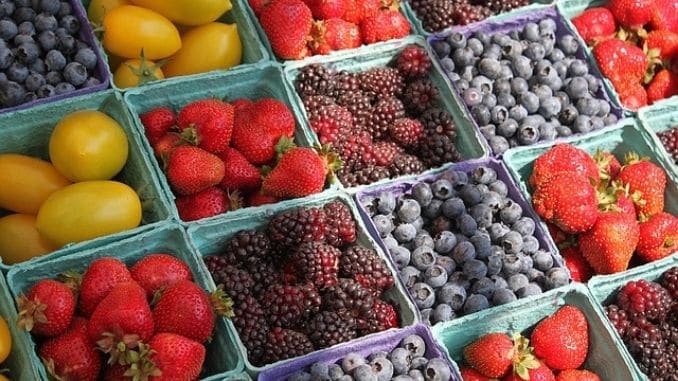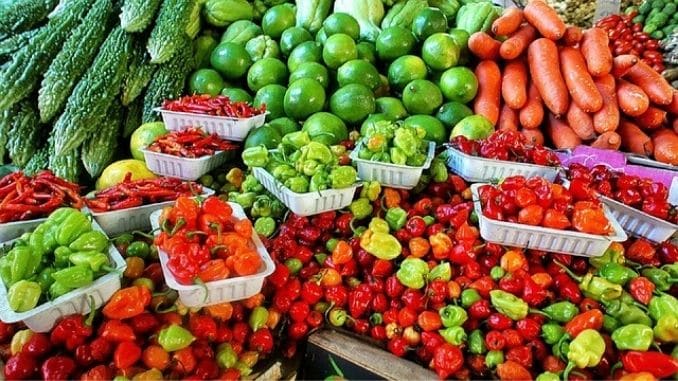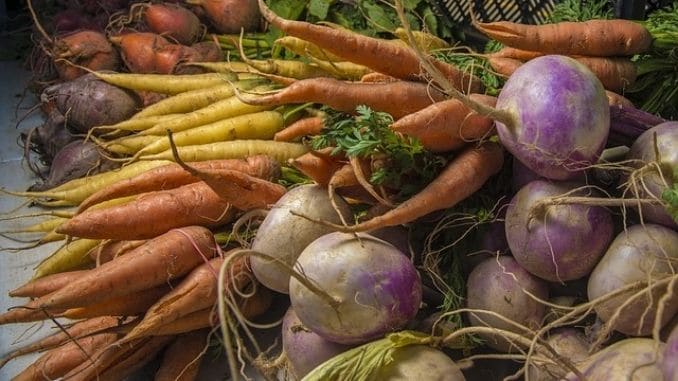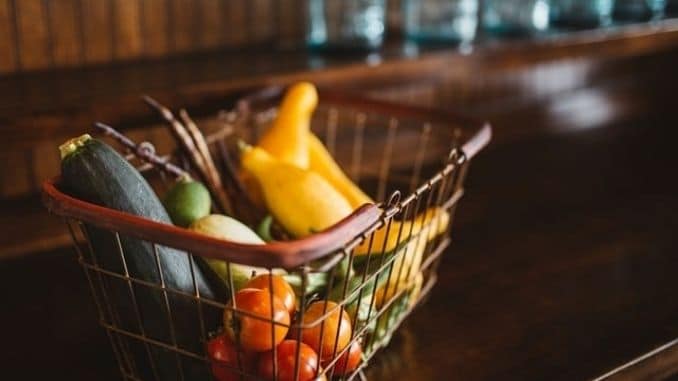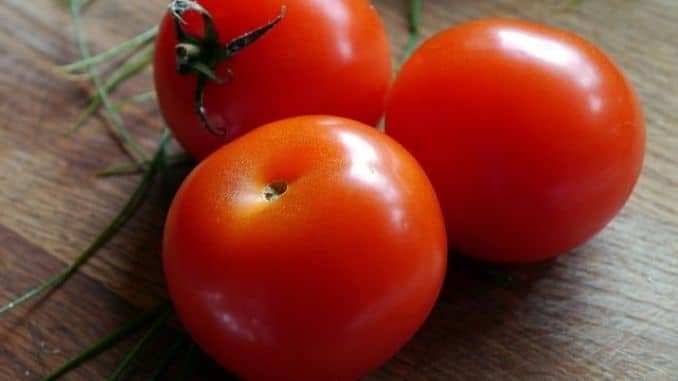
“It was one of those March days when the sun shines hot and the wind blows cold: when it is summer in the light, and winter in the shade,” Charles Dickens wrote in “Great Expectations.”
The quote describes well this time of year when it seems that Mother Nature is going through mood swings. It’s to be expected, though. Despite the flying snow and fierce winds in many areas of the country, winter is beginning to lose its hold. Many of us are seeing signs of spring in the increasing temperatures, swelling rivers and green shoots beginning to peek out of the ground.
That means not only should we be thinking about changing our wardrobes but changing the contents of our refrigerators and pantries too. Here are seven reasons why seasonal eating is a healthy idea, along with a list of foods perfect for this time of year.
What Is Seasonal Eating?
Seasonal eating is the practice of purchasing and eating foods around the time that they’re usually harvested.
In our modern world today, because of reliable refrigeration and other storage techniques, we can have just about any foods we want at any time of year. That reality has robbed us, however, of the natural goodness in fresh, nutritious food because produce must be harvested early in order to be shipped long distances and distributed to local grocery and retail stores.
It also contributes to the increasing use of fossil fuels as we pay to transport foods miles and miles across the country. According to one Iowa study, it is estimated that meals in the United States travel about 1,500 miles to get from farm to plate.
This is why many local communities are pushing the “eat local” message and setting up regular farmer’s markets in their downtown areas. Following are seven benefits of this movement and why it pays to be more mindful of what foods are coming into season in your area.
1. Seasonal Foods May Contain More Nutrients
Because foods stored and delivered out of season have been harvested early, they didn’t have as much time to ripen that seasonal foods do. When produce is left to mature on the plant, it gains nutrients, particularly flavonoids and antioxidants that we know are connected to protecting human health.
In a 2004 study on blackberries, researchers found that the level of anthocyanins — powerful antioxidants — increased more than fourfold as Marion blackberries went from underripe to overripe. Another variety — Evergreen blackberries — increased more than twofold.
Most produce items develop more antioxidants as they ripen because ripening is a sort of stressful activity. The plants need these antioxidants to defend themselves as the process occurs.
Unripe fruits are green because of their chlorophyll content. In a 2007 study, researchers found that as apples and pears ripened, they broke down chlorophyll and produced highly active antioxidants. Ripe fruits have replaced that chlorophyll with protective substances that we humans need.
Some foods also develop more nutrients as they ripen. Pineapples, for example, have more vitamin C when ripe than when underripe, and tomatoes develop more lycopene — a powerful antioxidant linked to lower risk of cancer — when left longer on the plant. In fact, studies show that the lycopene content is higher in tomatoes that are the deepest color of red, showing upmost ripeness.
How long food is stored can also affect nutrient content. Studies out of the University of California show that vegetables can lose 15 to 55 percent of vitamin C within a week of harvest, while some spinach can lose up to 90 percent of vitamin C within the first 24 hours of harvest.
These and other studies suggest we can get the most health-protecting nutrients by eating foods in season and as soon after harvest as possible.
2. Seasonal Foods Taste Better
If you’ve ever purchased fresh tomatoes, squash or other produce items from your local farmers’ market, you know they often taste much better than those available in the store.
Freshly picked produce typically create optimal flavor. They’re crisp, juicy and far tastier than food that has been stored for weeks or months. Eating more of these foods may not only benefit your health but can also remind you of the natural goodness of those foods you’ve been neglecting in your diet simply because they lacked flavor.
3. Seasonal Foods Often Cost Less
Whether you purchase your seasonal items from your local producers or the grocery store, you’ll likely pay less for it. That’s because of the simple properties of supply and demand. When foods are in season, there are more of them, and that drives the price down.
If you do get your food locally, you may pay even less yet because that food didn’t have to travel far. If you decide to buy out-of-season foods, however, you’re paying for storage and often the transportation too, and you’re also paying for foods that aren’t as plentiful, so you can expect to pay more.
4. Seasonal Eating May Support a Healthy Microbiome
Inside the gut is a thriving community of bacteria called the “microbiome.” If the balance between good and bad bacteria sways toward the good side, we experience benefits like healthy digestion and a strong immune system. If the bad guys gain the upper hand, we have digestive ailments and may succumb to more infections and other problems.
Recent research suggests that eating seasonally may help us keep the microbiome healthy. In a Stanford University study of a group of hunter-gatherers in Tanzania, researchers found that the microbes in the gut changed with the season, in sync with seasonal changes in the diet. Certain microbes that were present in one season would almost disappear in the next, suggesting changes in the microbiome that line up with the seasons.
Other research supports this idea, showing that starch-digesting enzymes increase in the gut naturally during the fall and winter when starchy tubers like potatoes and grains are harvested.
This suggests that eating seasonally may coordinate with changes in the microbiome that encourage healthy digestion and a strong immune system.
5. Seasonal Eating May be Better for the Environment
Eating out-of-season foods contributes to environmental degradation, according to some research. To transport and distribute food far away from where it was grown involves a high use of fossil fuels and generates large quantities of carbon dioxide emissions.
Eating seasonally — particularly if you choose local items — lowers your carbon footprint and helps support local farmers who choose to farm more sustainably. Seasonal, local foods often require much lower levels of pesticides and preservatives as well, which is also better for the environment as these toxins can leach into our waterways and soil.
A U.S. Department of Agriculture (USDA) study showed that direct-to-consumer producers were less likely to apply pesticides and herbicides than conventional producers.
6. Seasonal Foods Contribute to a Varied Diet
Let’s face it — we all get tired of what we’re eating from time to time. The same old dishes and recipes can get old and, if we aren’t enjoying what we’re eating, we’re not likely to get as many health benefits from it. In fact, some research suggests that we absorb more nutrients from foods we savor than from those we don’t enjoy eating or eat because we think we should.
Breaking old habits may be particularly important in the springtime, as we all tend to gain a little weight during the winter months. Eating seasonally can help us see food with a fresh eye and get us excited about eating healthy again.
7. Seasonal Eating May Help You Lose Weight
If you focus on eating those foods that are in season, you will probably tend to eat more whole foods, in general, which can help you lose weight. Studies have shown that eating more fruits, vegetables and other produce supports a healthy weight and is much more likely to lead to weight loss than eating processed and packaged foods.
In one study, for example, researchers recruited more than 600 participants between the ages of 18 and 50, about half women and half men. All were randomized into one of two groups: either a low-carbohydrate or low-fat diet. Both groups maintained these diets for a year.
The key, however, was that both diets were healthy. Lead study author Christopher Gardner stated, “We made sure to tell everybody, regardless of which diet they were on, to go to the farmers’ market and don’t buy processed convenience food crap.”
Results of that study showed that all individuals lost about 13 pounds, regardless of which diet they were on, suggesting that the true key to weight loss may be eating healthy, whole foods and avoiding processed and convenience foods.
What to Eat as the Weather Warms Up
If you’re sure what’s in season in March and April, we’ve got some great options for you:
- Swiss chard
- Spinach
- Romaine lettuce
- Beets
- Brussels sprouts
- Artichokes
- Asparagus
- Avocados
- Cabbage
- Cauliflower
- Carrots
- Broccoli
- Kumquats
- Lemons
- Limes
- Mandarins
- Oranges
- Onions
- Radishes
- Rhubarb
- Tangerines
- Turnips
- Walnuts
For fresh recipes, make sure to pick up your free copy of our Spring Cookbook, here!

